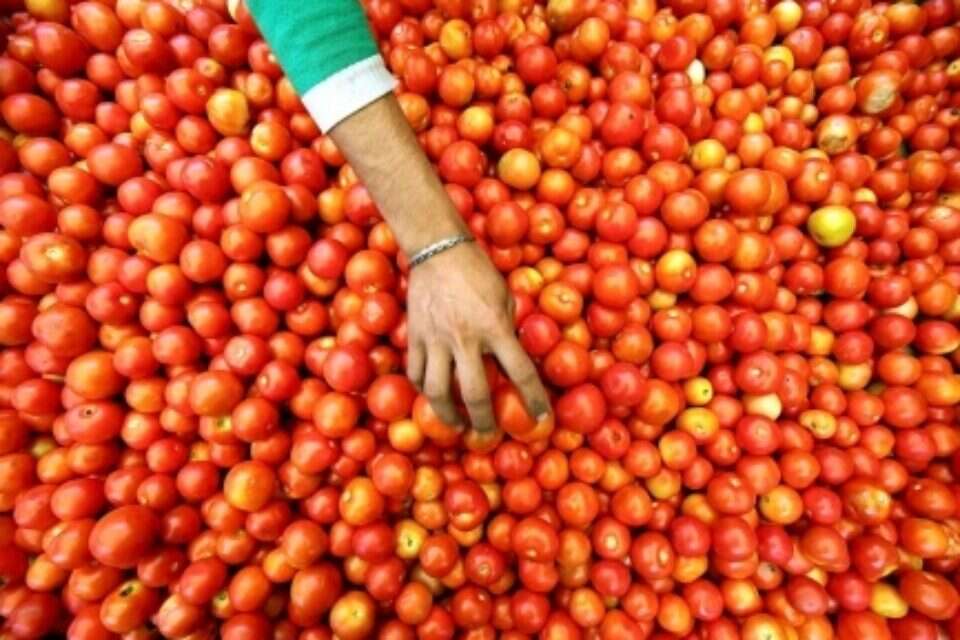Tomato crops, many of which focus on the area surrounding Gaza, were greatly affected during the war: at the beginning it was not possible to pick vegetables, and food chains turned to requests for imports from Turkey – which drew criticism, claiming that imports continued even after the tomatoes could be picked, but the food chains sell tomatoes that are not made in Israel, leaving tomatoes that no one buys in the habitats. The food chain industry claims that imports were made during the shortage, and that imports have now stopped.
Meir Yifrah, chairman of the Vegetable Growers Association, told Israel Hayom: "Usually imports from Turkey are mainly in the field of tomatoes. Tomatoes from Turkey can be identified by the fact that they are sting-free and of poor quality. It is worth paying attention and identifying the tomatoes, so that a situation does not arise in which the volunteers help the farmer in the envelope, and in the end, instead of buying an Israeli tomato, consumers will accidentally buy the Turkish tomato. You can see how much they 'love' us in Turkey, and you don't have to buy from them. I am sure that the citizens prefer Israeli products and the envelope rather than take from Israel-haters.
"Tomato imports from Turkey stand at 4,500 tons. Consumption is 18,000 tons, which means a third. There are volunteers from brothers in arms, schools, preparatory schools and more, and they help the farmers with love. I hope that decision makers will change diskettes regarding agriculture and farmers. The manpower problem in the field needs to be dealt with urgently and foreign workers must be brought in under different conditions, cheaper, not like the Thais, who are paid relatively high wages, in order for agriculture to recover. If they come under the same conditions, we will end up working for the Thais and not them for us."
Expensive tomatoes - and not of good quality, photo: Joshua Yosef
How helpful are the volunteers?
"The volunteers are great, but agriculture can't be built on volunteers. This is a field that requires professionalism and severe perseverance, and therefore requires foreign workers for agriculture. This is the first condition for food security."
As mentioned, tomatoes from Turkey were sold in the food chain industry at the beginning of the war. Now, the chains claim to have stopped importing tomatoes. Rami Levy told Israel Hayom: "We have already given an order from last week not to import tomatoes from Turkey. For 8 months, even before the war began, we hardly imported tomatoes from Turkey. In the envelope area there is an increase of 60% of tomatoes in Israel, but in the first days of the war they were not harvested at all throughout the country. At that time, there was also a great demand for tomatoes, because the Home Front Command announced that food had to be stocked up. As a result, the supply was smaller in the market, and farmers not in the Gaza envelope doubled and tripled the price, to about NIS 25 per kilogram.
"A week later there was still a shortage, and the tomatoes could not be picked in the wrap, and the price in the industry continued to be high. It should be noted that the entire market was imported from Turkey, not only with us. We, despite the shortage in the industry, did not raise the price and sold tomatoes for only 4.9 shekels, because we make sure that the price is fair.
"We have already given an order from last week not to import tomatoes from Turkey" // Photo: Jonathan Shaul
"A week later the whole country was flooded with tomatoes because all the chains were imported from Turkey. In the third week of the war near Gaza, they started picking tomatoes, and we bought everything they picked from them. However, consumption in Israel is still much higher than the country's growth. Any farmer who has goods is welcome to come and sell us goods, to the extent that his goods are worthy of sale."
Shufersal also decided to stop importing tomatoes, including all vegetables and fruits from Turkey. The chain says that in the first week of the war there was a sporadic import of carrots and tomatoes in Shufersal, because there was a very severe shortage, they say.
The chain has formulated an assistance plan to rehabilitate agricultural activity in Israel, which includes, inter alia, the provision of credit and advance payments to dozens of farmers in the envelope, expansion of the purchase of goods from the surrounding communities, giving full priority to Israeli produce, and more. Shufersal will set up designated sales points for local produce of Israeli agriculture in the chain's 300 branches - with stands with vegetables and fruits of agricultural produce harvested in Israel, accompanied by signs: "Israeli agriculture is Israeli pride." According to the chain, it undertakes that at any given moment 90 percent of the agricultural goods sold in the branches will be local Israeli produce.
Victory notes that tomatoes from Turkey have never been sold at the chain, except for one day - on October 9.
According to industry estimates, since food chains have stopped importing from Turkey, next week there may be a shortage of tomatoes and the price could more than double because the supply will be small. The price could return to about 25 shekels per kilogram, as it was at the beginning of the war.
Wrong? We'll fix it! If you find a mistake in the article, please share with us

